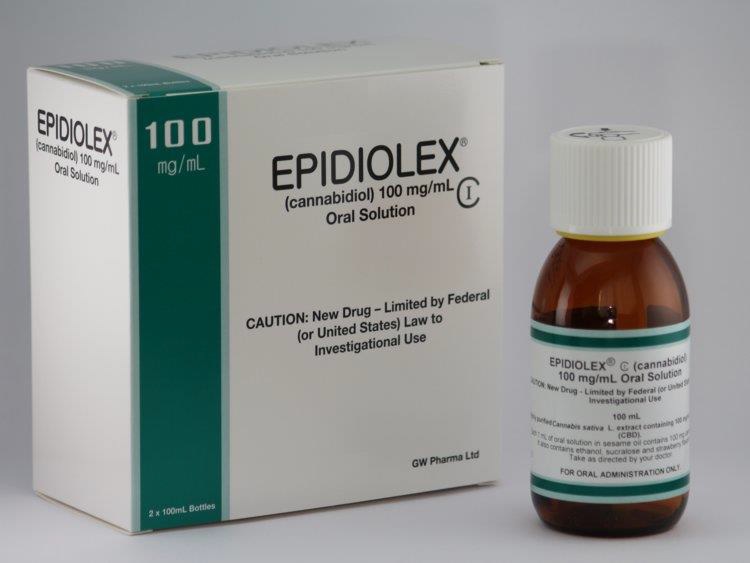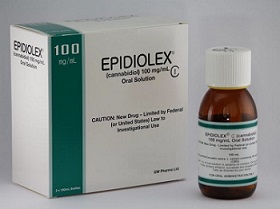Are you Ready for the Coming CBD Explosion? 10/26/2018

While passage of the 2018 Farm Bill has been delayed due to unresolved differences between its House and Senate versions – primarily centered on proposed changes related to the SNAP benefits program – most in the industry feel that once it is passed, likely in November or December, it will remove hemp from the Controlled Substances Act, opening the floodgates for expansion of hemp-related products beyond dispensaries and specialty retail and into the mass retail market.
As it currently stands, under the 2018 Farm Bill, which ushered in the modern hemp industry by allowing states to experiment with pilot projects in hemp production, expired September 30, though its provisions are continuing without any changes until the new bill is passed.
“The good news is that it feels like we’re hitting a tipping point right now, both for hemp and for cannabis,” said Liz Stahura, President & Co-Founder of BDS Analytics, a market research firm focused on the hemp and cannabis market, who was one of the presenters at ECRM’s recent CBD Symposium, which was held in conjunction with ECRM's Health Care EPPS in Phoenix. “We’re seeing bipartisan support for some of the legislation. However, it does feel like it’s two steps forward, and one step back. At the same time these things are happening on the national level, we have states like California cracking down on hemp-based CBD and not allowing it in regular retail channels.”
Still, most signs are pointing toward legalization of hemp, and both retailers and suppliers are starting to gear up now for when it eventually does happen, as most expect it to. (Indeed, this is why we launched our CBD Symposium this year, and will host a full CBD/Healthcare session this coming March).
'We’re hitting a tipping point right now, both for hemp and for cannabis,'
-- Liz Stahura, BDS Analytics
For those of you new to the CBD game, cannabinoids (which include THC - the stuff that gets you high and CBD) are chemical compounds secreted by cannabis flowers that may provide relief to an array of symptoms including pain, nausea, anxiety and inflammation. CBD is the non-psychoactive compound in cannabis with broad medical applications; regardless of where it is derived, it's the same chemical compound. Hemp-derived CBD comes from a cannabis plant with less than 0.3 percent THC by weight.
There is no doubt of the sales potential for hemp and CBD products, though the only yardstick we have to currently measure is that of the legal cannabis industry. According to Stahura, the legal cannabis industry in 2017 saw $9.5 billion in sales, and it’s forecast to surpass $13 billion this year.
For now, the best means of predicting where CBD product trends may head if it gets into the mass retail market is to extrapolate from trends that are currently being measured – those of the legal dispensaries and natural retail channels, which are tracked by BDS, with some assistance from SPINS, which tracks the natural product retail market. (Alfalfa’s, for example – one of these natural products retailers based in Colorado – says that CBD products are flying off its shelves.)
“What we’re seeing is a sophisticated emerging specialty retail channel that looks very much like specialty retail channels in just about any other industry,” says Stahura. “By paying attention to what’s happening in specialty retail, you are paying attention to the core enthusiast consumer, which is where innovation is happening, including incubation of new product development – essentially what’s next for the industry.”
This is similar to what happened in the organic segment – which started in specialty retail, then increasingly gained mass acceptance until where we are today, with more organic sales happening at mass retail than at specialty retail.
So what’s happening in the dispensaries? Following are some of the trends that are hot, and which provide some insights into the areas in which mass retail may want to focus in the event of legalization:
Interview with BDS Analytics' Liz Stahura
Branded products: Among those dispensaries and retailers offering hemp-based products is the move toward branded products. “We’re seeing sophisticated CPG-like packaging,” says Stahura. “We’re seeing celebrity endorsements and a lot of celebrity brands.”
Wellness, mood and effects-based marketing: As the science behind CBD products can be a but overwhelming for consumers to understand, brands are avoiding getting to technical in their marketing efforts and instead focusing more on the health benefits of their products, as well as the sense of well-being they promote.
Category-specific trends: While CBD products span a variety of food and HBC categories, following are the ones resonating strongest among the dispensaries and natural foods markets, according to BDS Analytics:
- Topicals: While this category is smaller in the dispensary channel, it’s the largest CBD category in the natural foods market. These include products such as creams and lotions for the skin, particularly for areas of the body with pain like the back.
- Edibles: In this category the CBD products are mirroring those of their THC brethren, with edibles growing from 6 percent of CBD sales last year to 22 percent this year. “As we see more focus on the wellness benefits of CBD as opposed to purely medicinal benefits, you’re seeing more growth in the candy and chocolates categories, as well as these products being branded as more of a lifestyle product,” says Stahura. “These products are absolutely commanding a higher price.”
- Capsules: Tablets with various doses and strengths of CBD.
- Tinctures/Oils: These can be dispensed directly onto the tongue or added to foods, particularly for those who do not like taking capsules.
- Vaping: The concentrates market, or vaping has already grown in popularity because of the tobacco and THC-based products, so it’s no surprise that this is growing as a method of delivering CBD as well.
- Pets: The pet category is an interesting one; in addition to providing many wellness benefits to pets, it’s also a way for consumers to test out the effectiveness of CBD products before trying them themselves.
- Metered dosing: This is a medical device-inspired category, modeled after asthma medicine, in which a set dosage of CBD is taken via an inhalant.
While mass retail adoption of these products may still be a few years away, it’s important to keep an open mind and be prepared, says Stahura. “Think about what it will mean for your business, and what these trends are going to impact what you’ll be doing over the next few years,” she says. “This is something that will impact virtually every category at retail.”
Click here to download the slide presentation from Liz Stahura at BDS Analytics
Harmony Hemp: Providing an On-Ramp for Mass Retail
Harmony Hemp, a supplier of hemp-based products, has come up with a way for retailers to ease their way into the CBD game by developing a non-CBD extension of its current line of products.
Founder Courtney Roundy began learning about CBD from his good friend whose son was experiencing positive results treating Schizophrenia with CBD. Having known his friend’s son prior to diagnosis, seeing the results firsthand was the catalyst for further research and the development of Harmony Hemp. The company has since developed several condition specific formulations enhanced by CBD as a result of the evidential findings of this remarkable plant. With 34 years of FDM experience and existing vendor relationships among all major retailers, Roundy knew he was in a unique position to bring Harmony Hemp’s vast selection of cross-category products to a larger audience and help as many people as possible with their overall wellness.
Interview with Harmony Hemp Founder Courtney Roundy
The product is actually a non-CBD extension of Harmony Hemp’s condition specific, hemp supplements. Understanding the state-to-state and federal regulatory constraints and the stigma associated with CBD, Roundy knew that a staged product launch, from non-CBD to CBD products, would be ideal for the mass retail market. “By creating a family friendly, non-CBD line in addition to the CBD line, Harmony Hemp will bridge the gap national retailers have regarding CBD,” said Roundy. “By having a staged product launch from non-CBD to CBD products, we enable retailers to be first to market and have their stores become a destination which will inevitably grow the basket.”



Tony can be reached at (440) 528-0416